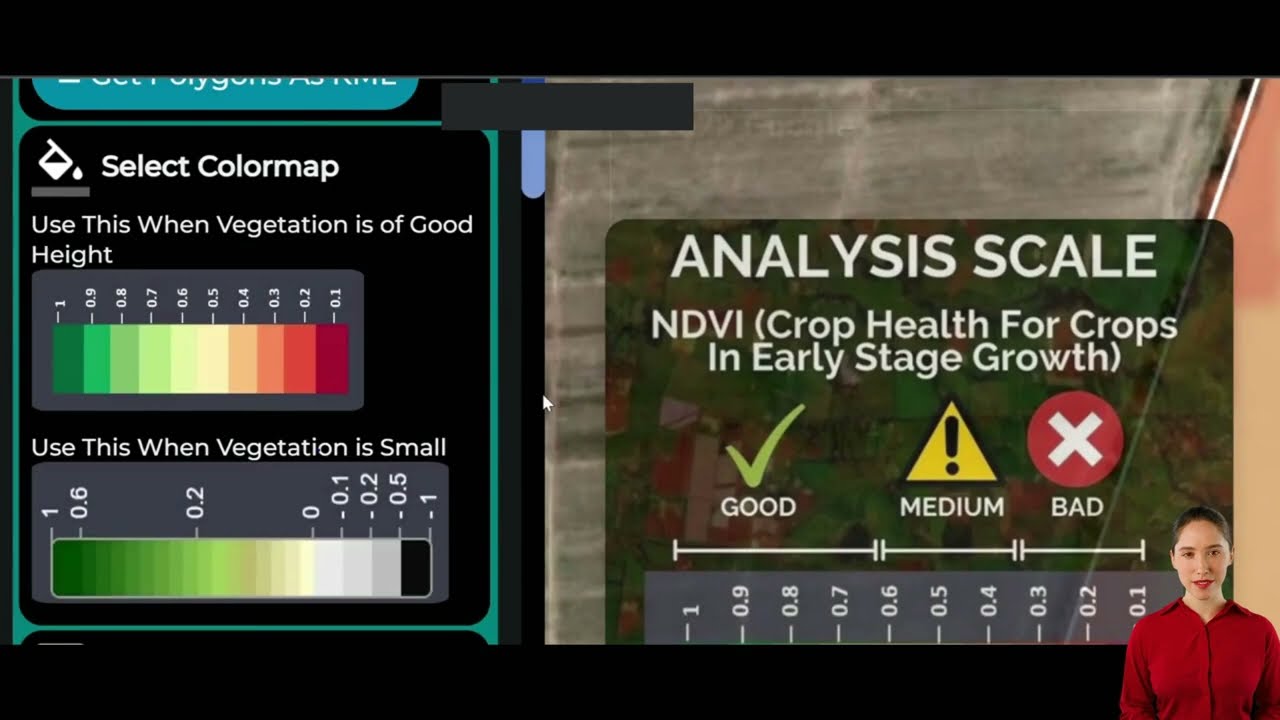USDA Suspends Crucial HBCU Agriculture Scholarships: Impact on Rural Students and Diversity in Higher Education
“The USDA 1890 Scholars Program suspension affects 19 universities, impacting agriculture and natural resource sciences education.”
In a move that has sent shockwaves through the higher education community, particularly among historically black colleges and universities (HBCUs), the U.S. Department of Agriculture (USDA) has suspended a crucial scholarship program aimed at supporting students in agriculture, food safety, and natural resource sciences. This development has raised significant concerns about the future of agriculture education funding and its impact on food safety education programs, as well as the broader implications for diversity and equity in agricultural education.

We, as advocates for equitable access to higher education and proponents of diversity in agriculture, find ourselves deeply concerned about the implications of this suspension. The USDA 1890 Scholars Program, which provided full tuition and fees for rural students and underserved communities, has been a cornerstone of diversity and equity in agricultural education. Its suspension coincides with a broader funding freeze, affecting agricultural science degrees and natural resource sciences education across 19 universities known as the 1890 land grant institutions.
Understanding the USDA 1890 Scholars Program
The USDA 1890 Scholars Program, established in 1992, has been a vital instrument in promoting diversity in agriculture education and supporting rural student scholarships. Named after the Second Morrill Act of 1890, which established historically Black colleges and universities, this program has been instrumental in providing opportunities for students from underserved communities to pursue careers in agriculture, food safety, and natural resource sciences.
Key features of the program included:
- Full tuition and fees coverage for eligible students
- Focus on agriculture and related fields
- Support for students at 19 designated 1890 land grant universities
- Emphasis on leadership and community service
The program’s eligibility criteria included being a U.S. citizen with a GPA of 3.0 or better, along with acceptance to one of the 19 1890 land grant universities. In fiscal year 2024, 94 students were awarded scholarships, with the USDA setting aside $19.2 million for the program in October.
The Suspension and Its Immediate Impact
The suspension of the HBCU agriculture scholarships has been met with widespread concern and criticism. Rep. Alma Adams, a Democrat representing a North Carolina district that includes Charlotte, called the move “infuriating” and urged the USDA to rescind it. She emphasized the program’s role in making higher education accessible and providing opportunities for students to work at USDA, especially in critical fields that Americans rely on daily.
This suspension is not occurring in isolation. It coincides with a funding freeze instituted by the Trump administration, which cited the need to review whether spending aligned with executive orders on issues such as climate change and diversity, equity, and inclusion programs. This broader context adds layers of complexity to the situation, intertwining issues of education funding with broader political and social debates.
Long-term Consequences for Agricultural Education and Diversity
The suspension of the USDA 1890 Scholars Program raises serious concerns about the long-term consequences for agricultural education and diversity in the field. We anticipate several potential impacts:
- Reduced Access to Higher Education: The program has been a crucial pathway for rural and underserved students to access higher education in agricultural sciences. Its suspension could significantly reduce the number of students from these backgrounds entering the field.
- Diminished Diversity in Agriculture: The scholarship program has been instrumental in increasing diversity in agricultural sciences. Its suspension could lead to a less diverse workforce in this critical sector.
- Impact on Food Safety and Natural Resource Management: With fewer students from diverse backgrounds entering these fields, there could be a long-term impact on innovation and problem-solving in food safety and natural resource management.
- Economic Impact on Rural Communities: The program has been a means for students from rural areas to gain education and potentially bring that knowledge back to their communities. Its suspension could have economic repercussions for rural areas.
“The scholarship program’s freeze threatens diversity in agricultural education, potentially reducing rural student enrollment by up to 100%.”
The Role of Land Grant Universities in Agricultural Education
To fully understand the impact of this suspension, it’s crucial to recognize the role of land grant universities in agricultural education. The 1890 land grant institutions have been pivotal in providing agricultural education to underserved communities, particularly African American students.
These universities include:
- Alabama A&M University
- Florida A&M University
- North Carolina A&T State University
- Tuskegee University in Alabama
- … and 15 other institutions across the country
These universities have been at the forefront of agricultural research and education, particularly in addressing the unique challenges faced by small-scale and minority farmers. The suspension of the scholarship program not only affects individual students but also potentially undermines the broader mission of these institutions.

The Intersection of Agriculture, Climate Change, and Racial Equity
The suspension of the USDA 1890 Scholars Program comes at a time when the intersection of agriculture, climate change, and racial equity is more pronounced than ever. Climate change poses significant challenges to agriculture, and diverse perspectives are crucial in developing innovative solutions. The scholarship program has been instrumental in bringing these diverse perspectives into the field.
Moreover, the program has been a step towards addressing historical racial discrimination in agriculture. The 1890 land grant institutions were established precisely because of racial segregation in higher education. By supporting students at these institutions, the USDA program has been a small but significant step towards rectifying historical injustices.
The Role of Technology in Modern Agriculture Education
As we consider the impact of the scholarship suspension, it’s important to recognize the evolving landscape of agriculture education, particularly the role of technology. Modern agriculture increasingly relies on advanced technologies for precision farming, crop monitoring, and resource management. Companies like Farmonaut are at the forefront of this technological revolution in agriculture.
Farmonaut offers satellite-based farm management solutions that are making precision agriculture more accessible and affordable. Their platform provides services such as real-time crop health monitoring, AI-based advisory systems, and resource management tools. These technologies are becoming increasingly important in agricultural education, preparing students for the future of farming.
The suspension of the USDA scholarship program could potentially widen the gap in access to these technologies between students from different backgrounds. This makes it even more crucial to find ways to ensure that all students, regardless of their background, have access to the latest agricultural technologies and education.
Impact on Food Safety Education Programs
Another critical aspect affected by the suspension of the USDA 1890 Scholars Program is food safety education. The program has been instrumental in supporting students pursuing degrees related to food safety, an area of utmost importance for public health and the agriculture industry.
The potential reduction in students entering food safety education programs could have far-reaching consequences:
- Decreased diversity in food safety professionals
- Potential gaps in addressing food safety issues specific to diverse communities
- Reduced innovation in food safety practices and technologies
This situation underscores the need for continued support for food safety education programs and the importance of diverse perspectives in this critical field.
The Broader Context: Funding for Agricultural Science Degrees
The suspension of the USDA 1890 Scholars Program is part of a broader context of funding challenges for agricultural science degrees. Agricultural education, particularly at the higher education level, requires significant resources for research facilities, field experiences, and advanced technologies.
The funding freeze affecting these scholarships raises questions about the overall commitment to agricultural education at the federal level. It’s crucial to consider the long-term implications of reduced funding for agricultural science degrees:
- Potential decrease in agricultural research and innovation
- Reduced capacity to address emerging challenges in agriculture and food production
- Possible brain drain in the agricultural sciences
As we navigate these challenges, it’s important to explore alternative funding sources and innovative approaches to supporting agricultural education. This is where technologies like those offered by Farmonaut can play a crucial role, providing cost-effective solutions for agricultural education and research.
The Response from Educational Institutions and Advocacy Groups
The suspension of the USDA 1890 Scholars Program has elicited strong responses from educational institutions and advocacy groups. Many have voiced their concerns about the potential long-term impact on diversity in agriculture and the ability of rural students to access higher education.
Some key responses include:
- Calls for immediate reinstatement of the program
- Advocacy for increased funding for HBCU agriculture programs
- Proposals for alternative scholarship programs to fill the gap
- Efforts to raise awareness about the importance of diversity in agricultural education
These responses highlight the widespread recognition of the program’s importance and the commitment of many stakeholders to ensuring continued support for diversity in agricultural education.
Looking Forward: The Future of Agriculture Education Funding
As we look to the future, it’s clear that the suspension of the USDA 1890 Scholars Program has sparked a broader conversation about the future of agriculture education funding. This situation presents both challenges and opportunities:
- Opportunity to reassess and potentially strengthen support for diversity in agricultural education
- Need for innovative funding models to support rural student scholarships
- Potential for increased collaboration between educational institutions, government agencies, and private sector companies like Farmonaut
- Importance of advocating for sustained and increased investment in agricultural science degrees and natural resource sciences education
The path forward will require concerted efforts from various stakeholders to ensure that agricultural education remains accessible and relevant to a diverse student body.
The Role of Technology in Addressing Educational Challenges
In light of the funding challenges facing agricultural education, technology can play a crucial role in bridging gaps and providing innovative solutions. Platforms like Farmonaut offer opportunities for students and educational institutions to access advanced agricultural technologies at a fraction of the traditional cost.
Some ways technology can address these challenges include:
- Providing remote access to advanced farming techniques through satellite-based monitoring
- Offering AI-driven advisory systems that can supplement traditional classroom learning
- Enabling virtual field experiences through advanced visualization technologies
- Facilitating collaborative research projects across institutions using shared data platforms
By leveraging these technologies, educational institutions can potentially mitigate some of the impacts of funding cuts and continue to provide high-quality agricultural education.
Explore Farmonaut’s innovative agricultural solutions:
Impact Assessment: A Comprehensive Overview
To fully grasp the impact of the USDA 1890 Scholars Program suspension, let’s examine a comprehensive overview of its effects on agricultural education and diversity:
| Impact Area | Details | Potential Long-term Consequences |
|---|---|---|
| Universities Affected | 19 HBCUs impacted, including Alabama A&M, Florida A&M, North Carolina A&T, Tuskegee University | Reduced capacity for agricultural research and education at these institutions |
| Estimated Students Affected (per year) | Approximately 94 students (based on FY 2024 data) | Fewer diverse students entering agricultural and related fields |
| Scholarship Value (annual average) | Full tuition and fees (specific amount varies by institution) | Increased financial burden on students, potentially discouraging enrollment |
| Key Agriculture Programs Impacted | Agriculture, Food Safety, Natural Resource Sciences | Potential reduction in innovation and diverse perspectives in these critical fields |
| Potential Long-term Consequences | Reduced diversity in agricultural workforce, decreased access to agricultural education for rural students, potential impact on food safety and natural resource management | Long-term implications for agricultural innovation, food security, and environmental management |
This table underscores the far-reaching implications of the scholarship suspension, highlighting the urgent need for alternative solutions and continued support for diversity in agricultural education.
The Way Forward: Recommendations and Potential Solutions
As we navigate the challenges posed by the suspension of the USDA 1890 Scholars Program, it’s crucial to consider potential solutions and recommendations for the way forward:
- Advocacy for Reinstatement: Continued pressure on policymakers to reinstate the program, emphasizing its importance for diversity and rural student access to higher education.
- Alternative Funding Sources: Exploration of private sector partnerships, alumni networks, and other funding sources to create alternative scholarship programs.
- Technology Integration: Leveraging platforms like Farmonaut to provide cost-effective access to advanced agricultural technologies, potentially offsetting some of the financial burdens on students and institutions.
- Collaborative Research Initiatives: Encouraging collaboration between HBCUs and other institutions to pool resources and maintain robust research programs.
- Policy Advocacy: Working towards long-term policy changes that ensure stable funding for agricultural education and diversity initiatives.
These recommendations aim to address both the immediate impacts of the scholarship suspension and the long-term needs of agricultural education and diversity in the field.
Conclusion: A Call to Action
The suspension of the USDA 1890 Scholars Program represents a significant challenge to diversity in agricultural education and the future of the field. However, it also presents an opportunity for the agricultural community to come together, innovate, and find new ways to support the next generation of diverse agricultural professionals.
We must recognize that the future of agriculture depends on diverse perspectives, innovative technologies, and continued investment in education. As we move forward, it’s crucial that we:
- Continue to advocate for the reinstatement of the USDA 1890 Scholars Program
- Explore innovative funding models and technological solutions to support agricultural education
- Emphasize the importance of diversity in addressing the complex challenges facing agriculture and food safety
- Support initiatives that bridge the gap between traditional agricultural education and modern technological advancements
By taking these steps, we can work towards ensuring that agricultural education remains accessible, diverse, and at the forefront of innovation, even in the face of current challenges.
Explore Farmonaut’s API for agricultural data: Farmonaut API
Learn more about integrating Farmonaut’s technology: API Developer Docs
FAQ Section
- Q: What is the USDA 1890 Scholars Program?
A: It’s a federal scholarship program that provides full tuition and fees for students studying agriculture, food, or natural resource sciences at 19 historically Black land grant universities. - Q: Why was the program suspended?
A: The suspension coincides with a broader funding freeze instituted by the Trump administration to review spending alignment with executive orders on issues like climate change and diversity programs. - Q: How many students are affected by this suspension?
A: In fiscal year 2024, 94 students were awarded scholarships under this program. - Q: What are the potential long-term consequences of this suspension?
A: Potential consequences include reduced diversity in agricultural sciences, decreased access to higher education for rural students, and possible impacts on innovation in food safety and natural resource management. - Q: Are there any alternative programs available for students?
A: Currently, there are no direct replacements for the USDA 1890 Scholars Program. However, students are encouraged to explore other scholarship opportunities and financial aid options.
Earn With Farmonaut: Affiliate Program
Earn 20% recurring commission with Farmonaut’s affiliate program by sharing your promo code and helping farmers save 10%. Onboard 10 Elite farmers monthly to earn a minimum of $148,000 annually—start now and grow your income!
Farmonaut Subscriptions




















